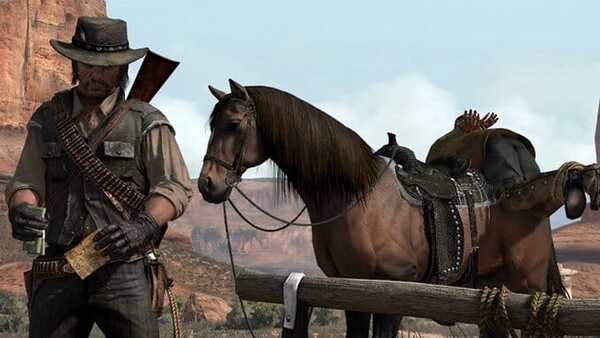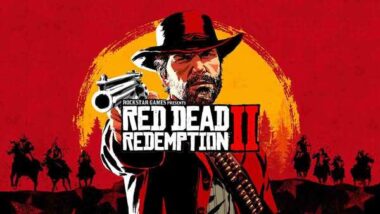Red Dead Redemption 2, developed by Rockstar Games, is widely acclaimed for its storytelling, rich world-building, and complex characters. A standout theme in this game is the exploration of morality and consequence. Throughout the game, players must confront the impact of their actions in a responsive, ever-changing world. This article dives into how these moral choices shape both Arthur Morgan’s journey and the player’s experience.
The Foundation of Morality in Red Dead Redemption 2
In Red Dead Redemption 2, morality is deeply embedded in the game mechanics. Players step into the boots of Arthur Morgan, an outlaw grappling with loyalty to his gang and his personal sense of right and wrong. Every decision made by the player shapes Arthur’s journey and affects how NPCs (non-playable characters) perceive him. Through environmental design, dialogue, and choice-based interactions, Rockstar presents a world where actions have lasting impacts.
The game’s morality system is not a simple right-or-wrong binary. It’s a spectrum, adapting to Arthur’s decisions and altering his honor level. Helping strangers or robbing innocents each moves Arthur along this scale, which influences story endings, mission outcomes, and day-to-day interactions. This approach pushes players to think critically about each choice.
How Honor Shapes Arthur’s Identity
Honor in Red Dead Redemption 2 is more than a stat—it reflects Arthur’s growth and the player’s influence. As Arthur’s honor shifts from high to low, it changes his inner reflections, shown in journal entries, and even his reputation. A high-honor Arthur is respected by townsfolk, while a low-honor Arthur inspires fear and distrust.
This honor system reinforces Arthur’s internal conflict, revealing his dual identity. He’s a man loyal to Dutch Van der Linde’s gang, yet haunted by regret over past misdeeds. Players can explore this duality by choosing paths that redefine Arthur’s identity, which in turn influences various game outcomes.

Players can explore this duality by choosing paths that redefine Arthur’s identity, which in turn influences various game outcomes
The Role of NPCs in Reflecting Morality
Interactions with NPCs emphasize the moral themes in Red Dead Redemption 2. Townsfolk, gang members, and travelers react differently to Arthur depending on his honor level. For example, a high-honor Arthur receives admiration, while a low-honor one is met with hostility.
These reactions go beyond simple greetings. Some NPCs recognize Arthur’s past actions, which can lead to unpredictable encounters. Previous conflicts might prompt an NPC to seek revenge or offer unexpected help later. These reactions make Arthur’s moral choices feel deeply connected to the world around him.
The Influence of Camps on Arthur’s Morality
Inside Arthur’s camp, interactions with gang members reveal his personal struggles. Choices affect the camp’s atmosphere and how gang members treat him. A more selfless Arthur becomes a confidant, with comrades showing greater trust in him. This reflects the tension between loyalty to the gang and his personal values.
The Symbolism of Money and Material Wealth
Money plays a central role in Red Dead Redemption 2, driving the gang’s actions and motivations. Yet Rockstar presents wealth as a corrupting force, tying it to morally gray choices. Many missions revolve around money, challenging players to consider how far they’ll go for financial gain.
Arthur’s perspective on money changes throughout the story. Early on, he cares little about personal needs, prioritizing the gang’s wealth. As the story unfolds, his attitude shifts, reflecting his growing detachment from materialism and his movement toward personal redemption.
Environmental Storytelling and Moral Landscape
The wilderness of Red Dead Redemption 2 serves as a silent narrator, underscoring themes of morality and consequence. Desolate camps, abandoned cabins, and crumbling towns hint at lives shaped by difficult choices. These settings mirror Arthur’s journey, showing the costs of living a life outside the law.
Exploring these landscapes reveals stories of survival, desperation, and consequence. The environment itself becomes a reminder of moral fallout, demonstrating that Arthur’s journey is just one of many shaped by similar dilemmas. This reinforces the theme that moral consequence is part of the world Arthur inhabits, not just his personal struggle.

This reinforces the theme that moral consequence is part of the world Arthur inhabits, not just his personal struggle
The Balance of Freedom and Responsibility
In Red Dead Redemption 2, freedom is both a blessing and a curse. Arthur is part of a gang that rejects societal norms, living by its own moral code. However, over time, he realizes that freedom comes with a high price. He grows more aware of how his choices affect himself and others.
This tension between freedom and responsibility emerges during missions where Arthur must decide between self-interest and loyalty to his gang. Choosing to save or abandon a comrade in danger highlights this conflict. These decisions create a moral tug-of-war, forcing players to balance Arthur’s personal freedom against his obligations.
The Influence of Dutch on Arthur’s Moral Journey
Dutch Van der Linde, Arthur’s mentor, plays a key role in his moral journey. Initially, Dutch seems like a visionary, but his descent into greed and paranoia forces Arthur to question his loyalty. This manipulation intensifies Arthur’s moral conflict, making him reconsider his values and priorities.
Moments of Redemption: Critical Story Arcs
Arthur’s story is filled with moments that allow for redemption. One of the most significant occurs when Arthur contracts tuberculosis, a turning point that forces him to confront his mortality. This diagnosis gives Arthur a new outlook, pushing him toward more selfless actions.
In his final missions, Arthur attempts to make amends, helping people he’s wronged in an effort to right his past mistakes. These moments of redemption offer closure, allowing Arthur a glimpse of peace. Red Dead Redemption 2 portrays redemption as a difficult, yet attainable goal, even for an outlaw like Arthur.
The Tragic Nature of Consequence
Although Arthur seeks redemption, Red Dead Redemption 2 makes it clear that some consequences are permanent. His journey is marked by losses that can’t be undone, showing that certain actions have irreversible effects. Even in seeking forgiveness, Arthur faces reminders that the past remains part of him.
His relationships and health are forever impacted by his choices. Arthur loses friends, love interests, and his own well-being due to his criminal lifestyle. This tragic aspect of Arthur’s path illustrates the lasting weight of consequence, revealing that efforts to change cannot fully erase history.
The Impact of Player Choice on Game Endings
Red Dead Redemption 2 offers different endings based on Arthur’s honor level, each reflecting his moral arc. A high-honor Arthur experiences a peaceful yet somber ending, while a low-honor Arthur meets a more violent fate. These outcomes allow players to see the consequences of their choices in powerful ways.
The game’s multiple endings provide closure, showing how Arthur’s journey concludes based on his moral decisions. Each ending reinforces the message that every choice matters, adding depth to the game’s portrayal of consequence and morality.

The game’s multiple endings provide closure, showing how Arthur’s journey concludes based on his moral decisions
Legacy and Reflection: Arthur’s Enduring Influence
After Arthur’s journey ends, his legacy lives on through John Marston, the protagonist of the original Red Dead Redemption. Arthur’s actions and lessons influence John’s decisions, motivating him to lead a more honorable life. Through John, the game shows how Arthur’s moral growth has a lasting impact on others.
This connection between Arthur’s legacy and John’s journey highlights the enduring nature of Arthur’s redemption arc. It shows that moral transformation, even in a harsh world, can inspire others. Rockstar suggests that the consequences of our actions extend beyond ourselves, shaping those around us.
Conclusion: The Power of Morality and Consequence in Red Dead Redemption 2
Red Dead Redemption 2 challenges players to confront complex questions about morality and consequence in a world with little forgiveness. Arthur Morgan’s journey explores the cost of freedom, the weight of responsibility, and the hope for redemption. Through its intricate narrative, dynamic environments, and realistic NPC interactions, the game presents morality not as a simple choice between right and wrong, but as an evolving journey shaped by circumstance, growth, and a desire to leave a positive impact.
Ultimately, Red Dead Redemption 2 stands as a powerful statement on the importance of choice, consequence, and redemption in a morally gray world. The game resonates deeply, reminding players that every action holds meaning and leaves a lasting impact.


